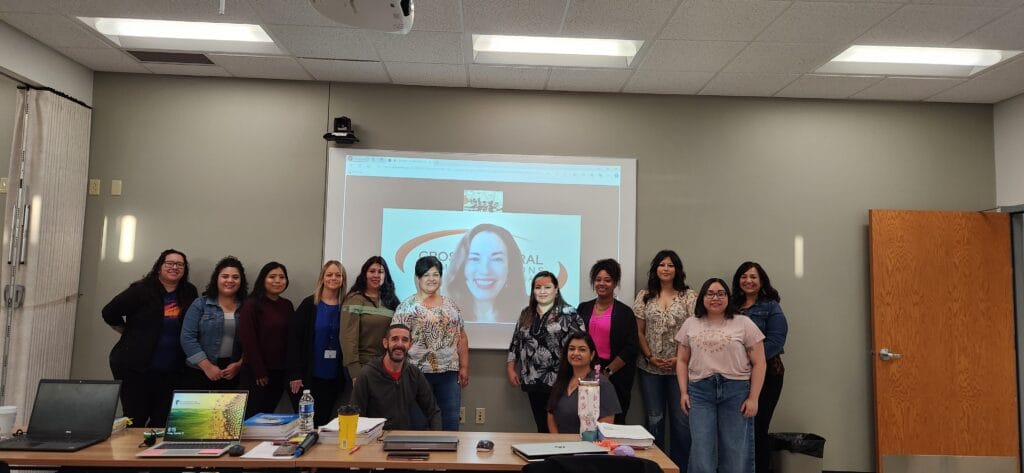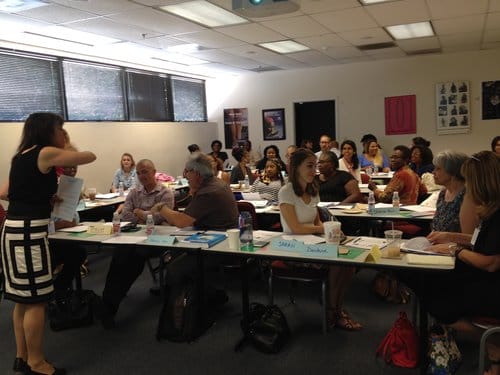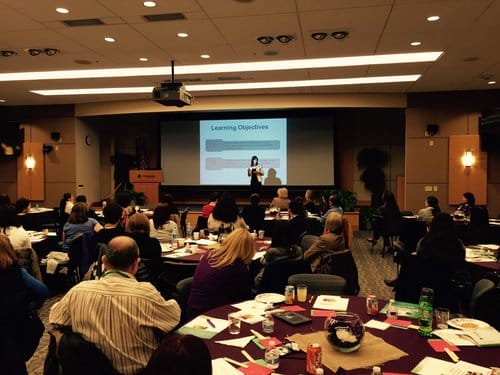We proudly serve a diverse range of healthcare organizations, including large medical systems, hospitals, community health centers, and nonprofits dedicated to healthcare services. Our clients, such as Kaiser Permanente Northern California and Johns Hopkins University School of Medicine, benefit from our industry-leading expertise, specialized training programs, and comprehensive consulting services.
Our expertise ensures that healthcare professionals have the skills to communicate accurately and effectively with diverse patient populations, reducing the risk of critical misunderstandings. By using qualified interpreters, organizations can significantly lower medical errors, reduce costs, decrease readmission rates, and improve patient outcomes.
Under the Affordable Care Act requirements, a “qualified” interpreter is proficient in English and at least one other language, understands the necessary medical terminology, and adheres to ethical standards. Healthcare providers must use skilled professionals, not under-trained bilingual staff, to avoid poor patient outcomes for Limited English Proficient (LEP) individuals.
CCC’s dynamic training empowers healthcare organizations to comply with legal and accreditation standards while adhering to national best practices. Our programs help protect against liability and foster a more inclusive environment where all patients can fully understand their care and treatment options.
Qualified staff interpreters ensure accurate & ethical communication in high-stakes situations, reducing errors, improving outcomes, and maintaining compliance across medical, legal, and community settings.
Reduce reliance on external resources and build an internal team of qualified staff or volunteers capable of delivering ongoing language and cultural competence training.
Address the full spectrum of language access needs, including interpreter training, multilingual resources, communication policies and procedures, compliance strategies, and more.
Receive expert guidance on best practices, online training solutions, remote interpreting, cultural mediation, and more, as you implement and refine language access and cultural competence solutions across your organization.
We’re on a mission to empower organizations to deliver equitable, high-quality care to all patients, regardless of language or cultural background. We work with a range of clients — from local to international, private to public, and nonprofit to for-profit — to train bilingual staff and improve care.
We offer online, on-site, and interactive workshops that can be customized to fit the needs of your staff or volunteers. Build your own training program for maximum convenience, or access our existing courses through licensing agreements for ongoing staff development.
As pioneers in language access solutions, we provide consulting, technical assistance, and ongoing support to help organizations improve service delivery, implement best practices, ensure compliance, and more. Whether you’re starting from scratch or improving existing operations, we can be your guide.
Our signature Cultural Competence training is fun, simple, and EFFECTIVE. Grounded in national standards and best practices, it equips service providers, frontline staff, and interpreters with practical tools to navigate cultural and linguistic diversity. We also offer Training of Trainers so your staff can sustain this vital work from within.
We develop curricula for a variety of needs, including staff or volunteer training programs, custom Training of Trainers, conference workshops, and more. We create programs that equip your team with the skills and knowledge they need to effectively serve diverse populations.
Most recently, CCC conducted a three-day Cultural Competence in Health and Human Services Training of Trainers (TOT) session for 25 participants. The program provided trainers with a comprehensive toolkit — everything from instructional resources to expert-led guidance — ensuring they were fully prepared to deliver the training within their own organizations. By the end of the session, participants left not only with practical tools but also with the confidence and capacity to build cultural competence across their teams and communities.
In 2024, we designed and delivered four one-day Introduction to Community Interpreting Workshops for bilingual staff. Designed for up to 25 participants per session, each workshop was led by a highly qualified trainer and based on a nationally recognized model established in 2015. The program offered organizations a reliable entry point for interpreter training, reinforcing their capacity to serve multilingual communities with greater clarity and confidence.

CCC delivered The Community Interpreter® International 40-hour training to 24 bilingual community health workers. Led by experienced trainers, this two-cohort course emphasized professional interpreting standards and real-world healthcare applications—preparing participants to navigate clinical conversations, advocate effectively, and support equitable care delivery.
Cross Cultural Communications facilitated a Training of Trainers (TOT) session for The Community Interpreter® International program. Participants received advanced instruction and tools to train others, becoming licensed to train medical, educational and social services interpreters in their communities and advance language access to critical communities in need.
CCC provided a customized Medical Terminology Training of Trainers program to MUSC, equipping participants with the expertise and resources necessary to train others in medical terminology. This initiative aimed to enhance communication with LEP patients, ultimately improving medical outcomes and ensuring better patient care.
Barton Health sought assistance incorporating trauma-informed care into its services. CCC delivered The Trauma-Informed Interpreter training, equipping interpreters with techniques to approach trauma-sensitive scenarios with sensitivity and care.
CCC conducted How to Work with an Interpreter training sessions for Department of Health staff, equipping them with best practices for collaborating with interpreters in medical and public health settings. By strengthening these skills, the training helped state workers provide more inclusive, accessible, and effective care to Maryland’s diverse communities.

We delivered The Community Interpreter® International training, equipping staff interpreters with the skills and knowledge to effectively communicate with LEP patients. The training covered essential topics such as medical terminology, cultural competency, and interpreter best practices, empowering staff to provide inclusive, high-quality healthcare to the diverse communities they serve.

CCC led Medical Interpreter Ground Rounds: Advocacy & Mediation for Medical Interpreters. Through this training, interpreters gained a deeper understanding of what advocacy is — and isn’t — empowering them to support patients effectively within their full scope of practice. By reinforcing their role in patient education and communication, we helped ensure safer, more equitable healthcare interactions for all.
Intersect is our weekly e-newsletter with breaking news on language, culture and interpreting. Join 20,000+ subscribers in over 100 countries!